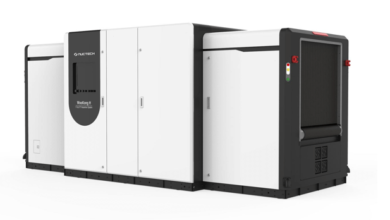Enterprise vs. Consumer Routers: Key Differences

When building a network, choosing the right router is critical. Whether you’re setting up a home office, a small business, or a large enterprise, the type of router you select can make or break your connectivity experience. At Link US Online, we’ve been helping businesses and individuals find the perfect networking equipment since 2011. One of the most common questions we get is about the differences between enterprise and consumer routers. Let’s break it down.
What Are Consumer Routers?
Consumer routers are designed for home or small office use. These routers are typically plug-and-play, offering straightforward setup and basic features for users with minimal networking expertise.
Common Features of Consumer Routers:
- Ease of Use: Simple setup processes with minimal configuration required.
- Basic Security: Includes standard features like WPA/WPA2 encryption and firewalls.
- Limited Connections: Ideal for small-scale networks with a handful of devices.
- Lower Cost: Affordable pricing for households and small offices.
While they work well for streaming, gaming, and light work-from-home setups, consumer routers may struggle under the demands of larger or more complex networks.
What Are Enterprise Routers?
Enterprise routers are built for businesses and organizations that require high performance, scalability, and advanced security. These routers are designed to handle large amounts of data, multiple simultaneous users, and complex configurations.
Common Features of Enterprise Routers:
- High Scalability: Supports extensive networks with hundreds or even thousands of devices.
- Advanced Security: Includes features like VPN support, intrusion prevention systems (IPS), and advanced firewalls.
- Customizable Configurations: Allows for tailored network setups to meet specific business needs.
- Durability and Longevity: Built for continuous operation in demanding environments.
- Centralized Management: Offers tools for monitoring and managing network performance across multiple locations.
Key Differences Between Enterprise and Consumer Routers
1. Performance and Capacity
- Consumer Routers: Designed for limited bandwidth and smaller numbers of connected devices, usually between 10–20.
- Enterprise Routers: Handle high traffic and support hundreds or thousands of devices simultaneously without sacrificing performance.
2. Security Features
- Consumer Routers: Basic security features like password-protected Wi-Fi and firewalls.
- Enterprise Routers: Advanced capabilities such as VPNs, encryption protocols, multi-factor authentication, and built-in intrusion detection/prevention systems.
This post was written by a professional at Link-Us Online. At Link-Us Online, we understand the power of networking and its potential to improve the efficiency of your business. Our team empowers users to discover and acquire high-quality networking hardware from a diverse range of suppliers. We offer a range of industry-leading solutions from top brands such as Cisco, Meraki, HPE, Juniper, APC, Fortinet, and Ubiquiti. Whether you’re a small business owner seeking reliable equipment for your expanding network or someone in the purchasing department working for universities, real estate management companies, or local governments hunting for specific gear, Link-Us Online is your dedicated ally. Contact us if you are looking for network modules.




